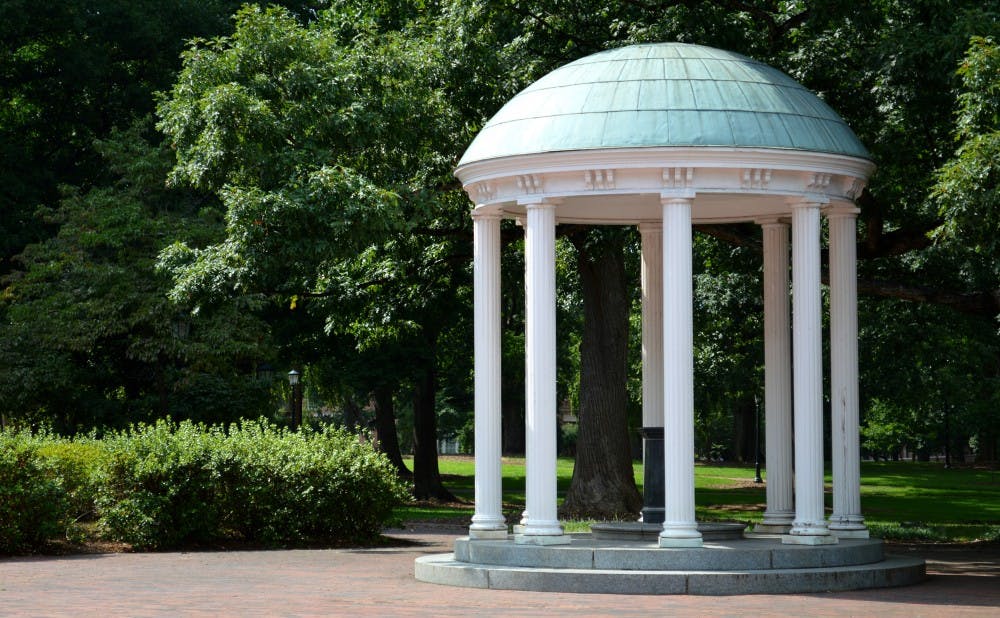An eight-month investigation into the academic scandal at the University of North Carolina, Chapel Hill revealed that the university’s “shadow curriculum” benefited more than 3,000 students—many of whom were student athletes.
The Wainstein report, released Wednesday, disclosed that between 1993 and 2011, UNC ran hundreds of sham courses that offered a grade-point boost to those enrolled—of whom nearly half were student athletes. The probe, conducted by former U.S. Justice Department official Kenneth Wainstein, found that a number of administrators, academic counselors and coaches were aware of the fraudulent courses or even complicit in their operation.
“Looking back from today, it is hard to understand how College officials allowed this oversight failure to happen,” the report states. “The University has been criticized for the lamentable oversight failure that allowed these classes to remain undetected and unaddressed for almost 20 years, and we believe that criticism is fair.”
Julius Nyang’oro, the former head of the university’s African and Afro-American Studies department, and Deborah Crowder, a retired department administrator, were heavily implicated in the report.
Approximately 3,100 students took the sham classes, which were mostly graded by Crowder. These “paper classes” did not meet and typically only required the submission of a paper, which rarely received grades lower than an A or a B. The report reads:
“Crowder provided the students with no actual instruction, but she managed the whole course from beginning to end. She registered the selected students for the classes; she assigned them their paper topics; she received their completed papers at the end of the semester; she graded the papers; and she recorded the students’ final class grades on the grade rolls.”
The report states that Nyang’oro signed his name to the grades and sustained the paper classes even after Crowder had retired.
Although criminal charges had been brought against both Nyang’oro and Crowder, the charges were dropped when they agreed to cooperate with Wainstein in the investigation.
The report portrays Crowder as a passionate sports fan whose “compassion” for student-athletes motivated her to help those who were struggling academically.”
“There is no question that her strong love for and identification with the sports program contributed to her willingness to offer paper classes that were disproportionately taken by student-athletes,” the report reads.
Crowder did not limit assistance to student-athletes—other students, most of whom were fully aware of the paper courses’ lack of rigor, were referred to the courses. Campus advisors “often referred academically-challenged students” to Crowder for placement in the classes.
The report cites one example of a student who was referred to Crowder when his low GPA put him in danger of losing his scholarship. The student was placed in a paper course and was able to retain his scholarship after receiving an A in the course.
Of the approximately 3,100 students who enrolled in the fraudulent courses, approximately 729 were fraternity members. Not only were fraternity members motivated to take the courses as a means of boosting their GPA—the fraternities themselves had an incentive to direct their members to these classes, the report indicates.
Both Crowder and Nyang’oro believed that the UNC administration wanted them to continue providing the fraudulent courses and cited the administration’s inaction over the years as evidence of its acquiescence, the report states.
Earlier this summer, the National Collegiate Athletic Association reopened its investigation into the academic scandal. The NCAA announced Wednesday that it is currently reviewing the report.
“The information included in the Wainstein Report will be reviewed by the university and the enforcement staff under the same standards that are applied in all NCAA infractions cases,” said a statement released jointly by the university and the NCAA.
The NCAA has, in the past, imposed sanctions on universities for wrongdoing. In 2009, it retroactively removed 12 victories by the Florida State University Seminoles in response to the ghostwriting of tests and papers for football players.
At a news conference Wednesday, UNC chancellor Carol Folt said that nine employees have been fired or are facing disciplinary procedures but refused to identify them, the Charlotte Observer reported.
The Wainstein report is the latest development in the ongoing UNC academic-athletics scandal. In 2012, a report commissioned by former North Carolina governor Jim Martin revealed that the university had offered hundred fraudulent courses, in which student-athletes were disproportionately enrolled. Earlier this year, UNC academic advisor Mary Willingham’s allegations that 60 percent of student-athletes read between fourth- and eight-grade levels drew national media attention.
“The bad actions of a few and the inaction of others failed the university’s students, faculty and alumni and undermined the institution as a whole,” Folt said in a statement Wednesday.
Get The Chronicle straight to your inbox
Signup for our weekly newsletter. Cancel at any time.

